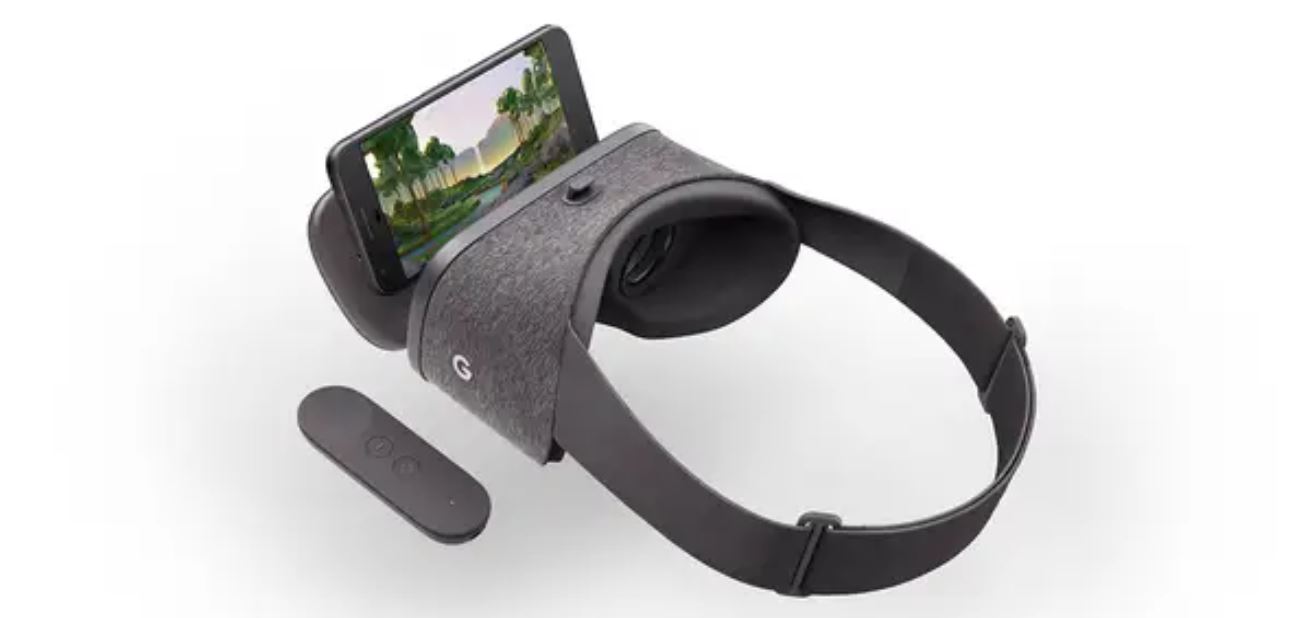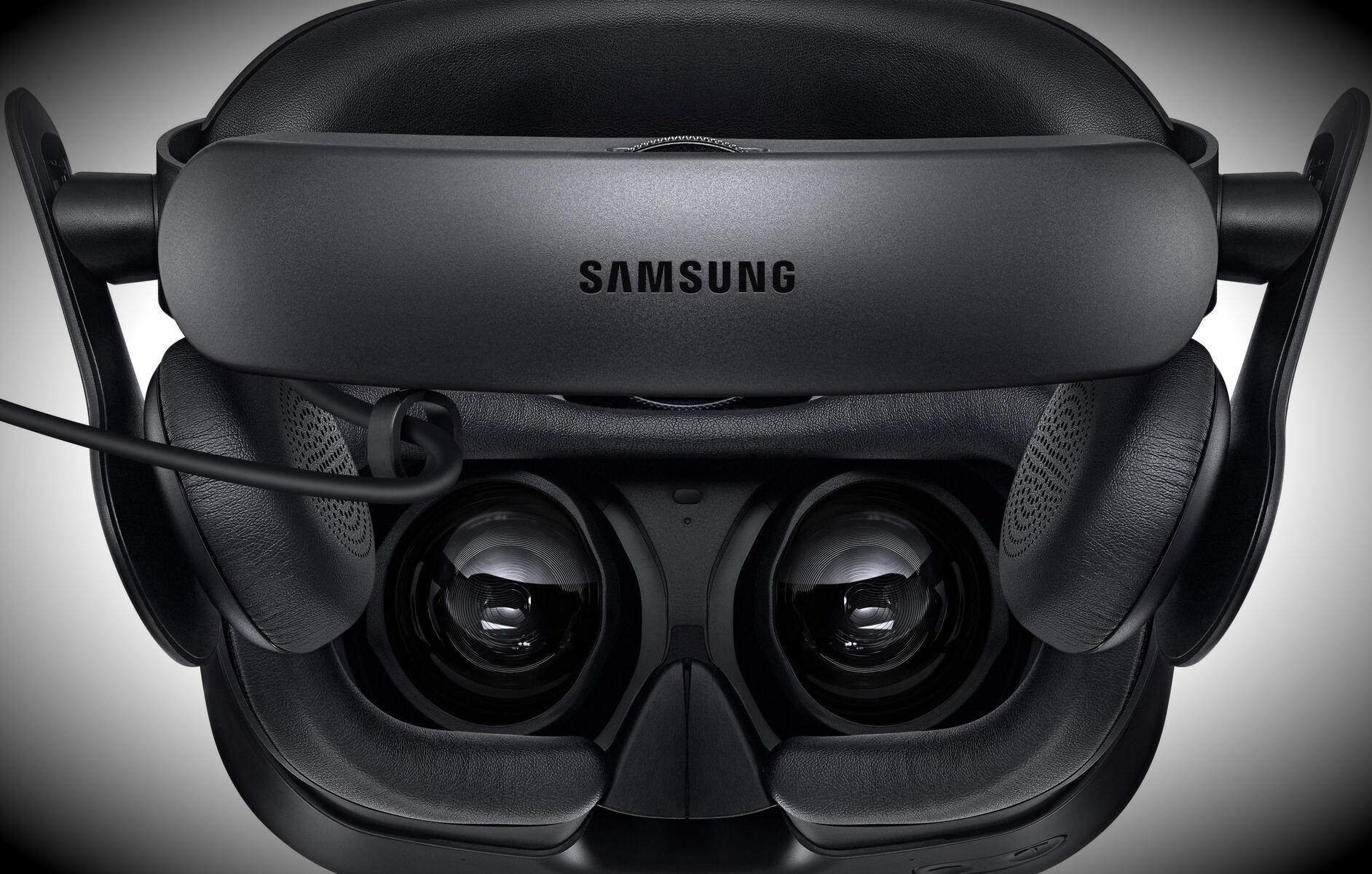Introduction
Gaming has evolved from a simple pastime to a multi-billion dollar industry, and the right gear can make all the difference in your gaming experience. Among the essential gaming peripherals, a high-quality gaming headset stands out as a crucial tool for immersive gameplay, crystal-clear communication, and strategic advantage. Whether you're a casual gamer, a professional esports competitor, or someone in between, choosing the perfect gaming headset can significantly enhance your gaming sessions.
In this comprehensive guide, we will delve into the world of gaming headsets, exploring the different types available, the key factors to consider when making a selection, and the various features that can elevate your gaming experience. From wired to wireless, stereo to surround sound, and microphone quality to comfort and durability, we will provide you with the knowledge and insights necessary to make an informed decision. Whether you're seeking an edge in competitive gaming or simply aiming to immerse yourself in the rich audio landscapes of your favorite games, this guide will equip you with the information needed to choose the perfect gaming headset for your needs.
Gaming headsets have become more than just a means to hear the game audio and communicate with teammates; they have become an extension of the gaming experience itself. With advancements in audio technology and innovative design, gaming headsets can transport you into the heart of the action, allowing you to hear the faintest footsteps of an approaching enemy, the thunderous roar of an explosion, or the subtle nuances of a game's soundtrack. Furthermore, the ability to communicate clearly and effectively with your teammates can be the difference between victory and defeat in team-based games, making the quality of the microphone an essential consideration.
As we embark on this exploration of gaming headsets, we aim to provide you with the knowledge and understanding necessary to navigate the vast array of options available in the market. By the end of this guide, you will be equipped with the expertise to make an informed decision, ensuring that your gaming headset complements your gaming style, enhances your audio experience, and ultimately elevates your overall gaming enjoyment.
Understanding the Different Types of Gaming Headsets
Gaming headsets come in various types, each catering to different gaming preferences and needs. Understanding these types is crucial in making an informed decision when selecting the perfect gaming headset for your gaming setup. Here are the main types of gaming headsets to consider:
1. Wired Gaming Headsets:
- Pros: Wired gaming headsets typically offer a reliable and consistent connection, ensuring minimal latency for an uninterrupted gaming experience. They are also generally more affordable than their wireless counterparts.
- Cons: The cables can sometimes be cumbersome and restrict movement, potentially leading to tangling issues.
2. Wireless Gaming Headsets:
- Pros: Wireless gaming headsets provide the freedom to move around without being tethered to your gaming device. This can be particularly advantageous for gamers who value flexibility and convenience.
- Cons: They may require charging, and there can be a slight latency compared to wired headsets, although this has significantly improved with advancements in wireless technology.
3. Stereo Gaming Headsets:
- Features: Stereo headsets deliver sound through two audio channels, providing a left and right audio output. They are known for their simplicity and affordability, making them a popular choice for casual gamers.
- Advantages: They offer clear and accurate audio positioning, allowing gamers to pinpoint the direction of in-game sounds with precision.
4. Surround Sound Gaming Headsets:
- Features: Surround sound headsets utilize multiple audio drivers to create a more immersive audio experience, simulating 360-degree soundscapes. This can enhance spatial awareness and immersion in games that support surround sound.
- Advantages: They provide a heightened sense of audio depth and directionality, crucial for competitive gamers who rely on audio cues for tactical advantage.
5. Hybrid Gaming Headsets:
- Features: Some gaming headsets offer hybrid capabilities, allowing users to switch between stereo and surround sound modes based on their preferences and the requirements of different games.
- Flexibility: This versatility caters to a wide range of gaming scenarios, offering the best of both stereo and surround sound functionalities.
Understanding the differences and unique features of these gaming headset types is essential for aligning your choice with your gaming style, preferences, and the specific demands of the games you play. By considering these options, you can narrow down your selection and find a gaming headset that complements your gaming setup and delivers an immersive and enjoyable audio experience.
Factors to Consider When Choosing a Gaming Headset
When embarking on the quest to find the perfect gaming headset, several critical factors should guide your decision-making process. By carefully considering these factors, you can ensure that the headset you choose aligns with your gaming preferences, enhances your overall gaming experience, and provides the functionality you need for immersive gameplay.
Sound Quality
One of the most crucial factors to consider is the sound quality offered by the gaming headset. Clear and accurate audio reproduction is essential for fully immersing yourself in the game environment, whether you're exploring rich soundscapes in open-world adventures or pinpointing the precise location of in-game enemies in competitive shooters. Look for headsets with high-quality audio drivers, robust bass response, and clear treble to ensure that every sound, from subtle environmental cues to explosive action sequences, is faithfully reproduced.
Compatibility
Before making a purchase, it's vital to ensure that the gaming headset is compatible with your gaming platform of choice. Whether you primarily game on a PC, console, or mobile device, verifying compatibility with your preferred gaming platform is essential. Additionally, some headsets offer universal compatibility, making them versatile options for gamers who enjoy playing across multiple platforms.
Comfort and Ergonomics
Extended gaming sessions require a headset that is not only capable of delivering exceptional audio but is also comfortable to wear for prolonged periods. Look for headsets with plush ear cushions, adjustable headbands, and lightweight designs to minimize discomfort during extended gameplay. Ergonomic considerations, such as swiveling ear cups and adjustable microphone booms, can further enhance the overall comfort and usability of the headset.
Build Quality and Durability
Investing in a gaming headset with robust build quality and durable materials can ensure longevity and reliability. Consider factors such as the construction of the headband, the quality of the ear cup hinges, and the overall sturdiness of the headset. A durable headset is better equipped to withstand the rigors of daily use and maintain its performance over time.
Microphone Performance
For gamers who engage in multiplayer communication or content creation, the quality of the microphone is a crucial consideration. Look for headsets with noise-canceling microphones that effectively filter out background noise, ensuring clear and articulate communication with teammates or audiences. Additionally, features such as flexible microphone booms and mute controls can further enhance the functionality of the headset's microphone.
Customization and Additional Features
Some gaming headsets offer customizable features, such as EQ settings, RGB lighting, and programmable buttons. These additional features can allow you to tailor the headset to your preferences and create a personalized audio experience. Consider whether these customization options align with your gaming needs and preferences, as they can contribute to a more tailored and enjoyable gaming experience.
By carefully evaluating these factors and aligning them with your specific gaming requirements, you can make an informed decision when choosing a gaming headset. Ultimately, selecting a headset that excels in sound quality, comfort, compatibility, and additional features can significantly enhance your gaming immersion and enjoyment.
Wired vs. Wireless Gaming Headsets: Pros and Cons
When considering the choice between wired and wireless gaming headsets, it's important to weigh the advantages and drawbacks of each option to determine which best aligns with your gaming preferences and needs.
Wired Gaming Headsets:
- Pros:
- Reliability: Wired gaming headsets are renowned for their reliable and consistent audio connections. By utilizing physical cables, they eliminate the potential for signal interference or dropouts, ensuring a stable and uninterrupted gaming experience.
- Minimal Latency: The direct connection offered by wired headsets results in minimal latency, providing instantaneous audio feedback that is crucial for competitive gaming scenarios where split-second reactions can make a difference.
- Affordability: In general, wired gaming headsets are more budget-friendly compared to their wireless counterparts, making them an attractive option for gamers seeking high-quality audio without breaking the bank.
Wireless Gaming Headsets:
- Pros:
- Freedom of Movement: Wireless gaming headsets offer the freedom to move around without being tethered to your gaming device. This flexibility can be particularly advantageous for gamers who value unrestricted movement during gameplay.
- Convenience: With no cables to manage, wireless headsets provide a hassle-free setup and eliminate the risk of tangling or tripping over wires, contributing to a more seamless and enjoyable gaming experience.
- Versatility: Advancements in wireless technology have significantly reduced latency in modern wireless headsets, making them a viable option for gamers who prioritize convenience without sacrificing audio performance.
Considerations:
When deliberating between wired and wireless gaming headsets, it's essential to consider the specific demands of your gaming environment and your personal preferences. While wired headsets excel in reliability and minimal latency, wireless options offer unparalleled freedom of movement and convenience. Additionally, advancements in wireless technology have narrowed the performance gap between wired and wireless headsets, making the decision more nuanced than ever before.
Ultimately, the choice between wired and wireless gaming headsets hinges on your prioritization of stability, latency, freedom of movement, and budget considerations. By carefully evaluating these factors, you can select a gaming headset that seamlessly integrates with your gaming setup and enhances your overall gaming experience.
Surround Sound vs. Stereo Sound: Which is Better for Gaming?
The debate between surround sound and stereo sound has been a longstanding topic of discussion among gamers, each with its own set of advantages and considerations. Understanding the distinctions between these two audio technologies is crucial for making an informed decision when selecting a gaming headset that aligns with your gaming preferences and the specific demands of your favorite games.
Stereo Sound:
Stereo sound, characterized by the delivery of audio through two channels, typically the left and right speakers, has been a staple in audio reproduction for decades. Its simplicity and affordability have made stereo sound a popular choice among gamers, offering clear and accurate audio positioning that allows players to discern the direction of in-game sounds with precision. This can be particularly advantageous in competitive gaming scenarios, where the ability to pinpoint the location of footsteps, gunfire, or other environmental cues is crucial for gaining a tactical advantage. Additionally, stereo sound headsets are known for their wide compatibility across various gaming platforms, making them a versatile choice for gamers who engage in multi-platform gaming experiences.
Surround Sound:
In contrast, surround sound technology aims to create a more immersive audio experience by simulating 360-degree soundscapes, often achieved through the use of multiple audio drivers. This heightened spatial awareness can significantly enhance the immersion in games that support surround sound, providing a more expansive and lifelike audio environment. For gamers who value an immersive and cinematic gaming experience, surround sound headsets can deliver a heightened sense of audio depth and directionality, enriching the overall gameplay immersion. In competitive gaming, surround sound can also offer strategic advantages by providing a more comprehensive audio landscape, allowing players to anticipate and react to in-game events with greater precision.
Which is Better for Gaming?
The question of whether surround sound or stereo sound is better for gaming does not yield a definitive answer, as the preference between the two is largely subjective and dependent on individual gaming styles and priorities. Stereo sound excels in providing accurate audio positioning, making it ideal for competitive gaming and scenarios where precise audio cues are paramount. On the other hand, surround sound offers a more immersive and expansive audio experience, enhancing the overall ambiance and depth of the game world.
Ultimately, the choice between surround sound and stereo sound hinges on the specific demands of the games you play and your personal preference for audio immersion. By carefully considering the audio characteristics of your favorite games and aligning them with your gaming priorities, you can select a gaming headset that best complements your gaming style and delivers an audio experience tailored to your preferences.
Microphone Quality and Noise Cancellation Features
The microphone quality of a gaming headset is a pivotal factor that significantly impacts communication clarity during multiplayer gaming sessions and content creation endeavors. A high-quality microphone not only facilitates seamless and articulate communication with teammates but also ensures that your voice is accurately captured without distortion or background noise interference.
When evaluating the microphone quality of a gaming headset, several key considerations come into play. Firstly, the microphone's sensitivity and frequency response dictate its ability to capture a wide range of vocal nuances, ensuring that your voice is faithfully reproduced without being muffled or overly amplified. Additionally, the microphone's directional pickup pattern influences its capacity to isolate your voice from ambient noise, enhancing communication clarity and minimizing distractions during intense gaming moments.
Noise cancellation features further elevate the microphone performance by effectively filtering out background noise, such as keyboard clatter, mouse clicks, or environmental sounds, ensuring that your voice remains clear and intelligible to teammates and online audiences. Advanced noise cancellation technology utilizes algorithms to distinguish between voice signals and ambient noise, resulting in crisp and focused vocal transmission.
For content creators, streamers, and online broadcasters, the microphone quality of a gaming headset holds even greater significance. A clear and natural-sounding microphone not only enhances the overall production quality of streaming and recording sessions but also fosters a more engaging and professional communication experience with viewers and subscribers.
Moreover, the flexibility of the microphone, including adjustable booms and swivel capabilities, allows users to position the microphone optimally for personalized comfort and audio capture. This adaptability ensures that the microphone aligns with individual preferences and facilitates effortless adjustments for optimal voice pickup.
In summary, the microphone quality and noise cancellation features of a gaming headset play a pivotal role in shaping the communication experience during gaming sessions and content creation endeavors. By prioritizing headsets with high-quality microphones and advanced noise cancellation capabilities, gamers and content creators can ensure crystal-clear communication, professional-grade audio transmission, and an immersive gaming and streaming experience.
Comfort and Durability: Finding the Right Fit for You
When it comes to gaming headsets, comfort and durability are paramount considerations that directly impact the overall gaming experience. A headset that provides long-lasting comfort and robust durability not only enhances immersion during extended gaming sessions but also ensures that the headset can withstand the rigors of daily use. Finding the right fit in terms of comfort and durability involves evaluating various design elements and construction materials to align with individual preferences and gaming habits.
Comfort begins with the physical ergonomics of the headset, encompassing factors such as cushioned ear cups, adjustable headbands, and lightweight designs. Plush and breathable ear cushions, often crafted from memory foam or soft leatherette, promote extended wear without causing discomfort or heat buildup. The ability to adjust the headband for a personalized fit is crucial, as it ensures that the headset conforms to the user's head size and shape, reducing pressure points and enhancing overall comfort.
Furthermore, the weight distribution of the headset plays a pivotal role in comfort, as a well-balanced design minimizes strain on the neck and head during prolonged use. Ergonomic considerations, such as swiveling ear cups and rotating hinges, allow users to customize the fit for optimal comfort, accommodating various head shapes and preferences.
Durability is equally essential, as a robust and resilient headset can withstand the demands of daily gaming without compromising performance. Factors such as the build quality of the headband, the durability of the ear cup hinges, and the overall sturdiness of the headset contribute to its long-term reliability. High-quality materials, including reinforced steel or aluminum frames, impact-resistant plastics, and durable cables, ensure that the headset can endure frequent use and maintain its structural integrity over time.
In addition to physical durability, the longevity of the headset's internal components, such as audio drivers and microphone mechanisms, directly influences its overall lifespan. Investing in a headset with reliable internal components can mitigate the risk of premature wear and degradation, ensuring consistent audio performance and microphone functionality over extended periods.
By prioritizing comfort and durability when selecting a gaming headset, users can optimize their gaming experience and minimize discomfort during prolonged gameplay sessions. A headset that offers a perfect balance of comfort and durability not only enhances immersion and audio quality but also serves as a reliable and long-lasting gaming companion, accommodating the diverse needs and preferences of gamers across various genres and gaming environments.
Conclusion
In conclusion, the quest for the perfect gaming headset encompasses a myriad of considerations, from sound quality and comfort to microphone performance and durability. The diverse array of gaming headset types, including wired, wireless, stereo, and surround sound options, offers a spectrum of audio experiences tailored to individual gaming preferences and demands. Understanding the nuances of each headset type and aligning them with specific gaming scenarios is crucial for selecting a headset that complements your gaming style and enhances your overall gaming immersion.
The choice between wired and wireless gaming headsets presents a balance between reliability, latency, and freedom of movement, catering to the diverse needs of gamers across different gaming environments. Additionally, the debate between surround sound and stereo sound underscores the subjective nature of audio preferences, with each offering unique advantages for competitive gaming, immersive experiences, and versatile compatibility.
Factors such as sound quality, compatibility, comfort, durability, and microphone performance play pivotal roles in shaping the gaming headset experience. By carefully evaluating these factors and aligning them with individual gaming priorities, users can make informed decisions when selecting a gaming headset that delivers exceptional audio performance, communication clarity, and long-term reliability.
Ultimately, the perfect gaming headset is one that seamlessly integrates with your gaming setup, enhances the audio landscapes of your favorite games, and fosters comfortable and immersive gaming experiences. Whether you're embarking on intense multiplayer battles, exploring captivating virtual worlds, or engaging in content creation endeavors, a high-quality gaming headset serves as an indispensable tool for elevating your gaming enjoyment and communication clarity.
As gaming technology continues to advance, the realm of gaming headsets evolves in tandem, offering innovative features and enhanced audio experiences. By staying informed about the latest advancements and understanding the unique attributes of different gaming headsets, gamers can continually refine their audio setups to align with their evolving gaming preferences and the demands of modern gaming experiences.
In the dynamic and ever-expanding world of gaming, the perfect gaming headset remains an essential companion, enriching gameplay, fostering seamless communication, and contributing to the overall enjoyment of immersive virtual adventures.

























